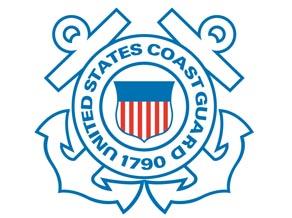The Coast Guard assisted a vessel in distress approximately 23 miles off Catalina Island, Wednesday.
The Coast Guard received a call via VHF radio ch 16 at 10 p.m., Wednesday, from a 37-foot sailing vessel, with two individuals aboard, reporting that the vessel was disabled due to a broken sailing boom.
The Coast Guard launched the Coast Guard Cutter Blacktip, homeported in Oxnard, Calif., to assist. All passengers were instructed to put on lifejackets while units were en route.
The Coast Guard assisted a vessel in distress approximately 23 miles off Catalina Island, Wednesday.
The Coast Guard received a call via VHF radio ch 16 at 10 p.m., Wednesday, from a 37-foot sailing vessel, with two individuals aboard, reporting that the vessel was disabled due to a broken sailing boom.
The Coast Guard launched the Coast Guard Cutter Blacktip, homeported in Oxnard, Calif., to assist. All passengers were instructed to put on lifejackets while units were en route.
The Blacktip crew arrived on scene and provided a spotlight to assist the vessel’s operator in an attempt to make necessary repairs to the boom. The vessel’s engine then began overheating and he lost all propulsion. The Blacktip crew took the vessel in tow. All boaters were reported to be in good condition.
Due to hazardous incoming weather and the loss of the vessel’s engine, Coast Guard Cutter Blacktip provided a safety tow to the Port of Los Angeles and Coast Guard Station Los Angeles-Long Beach assisted the vessel into safe harbor in the Port of Long Beach, Thursday afternoon.
The Coast Guard urges mariners to always:
• Stay Informed – The public should be aware of weather conditions and monitor the progress and strength of currents through local television, radio and internet. Check the current and expected weather and water conditions before heading out, and be aware that weather conditions can quickly change.
• Wear life jackets while on the water.
• File a float plan with friends, family members and local marinas before heading out. The list should include the number of passengers aboard the vessel, vessel’s destination and expected time of return.
• Always have a working marine-band radio on board.
• Carry marine flares on board the vessel.
• Ensure bilge pumps are operational and vessels are secure for heavy winds and rain.











